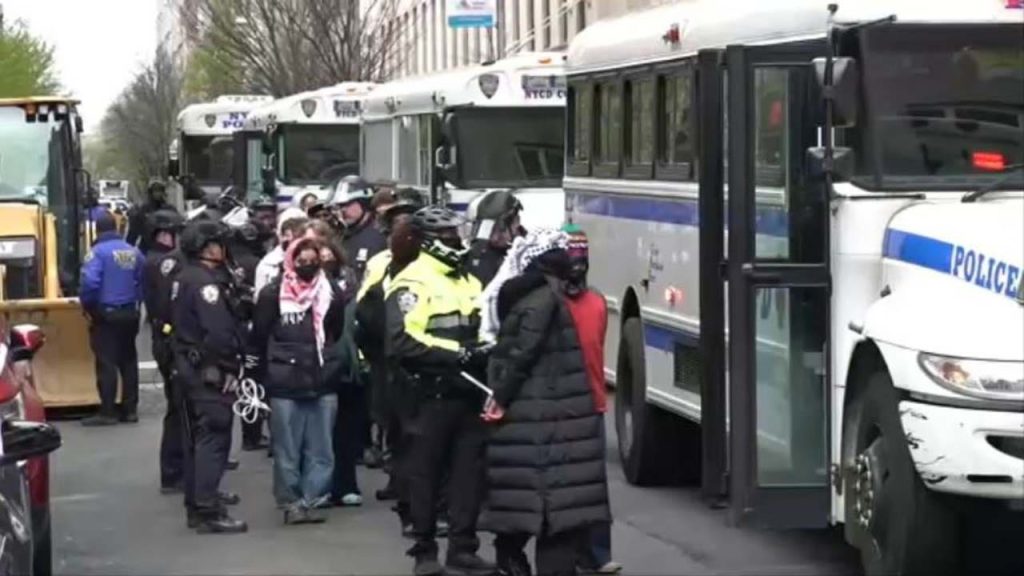Police were called to remove anti-Israel protesters from Columbia University’s campus in New York City after students set up an encampment on a campus lawn. University President Minouche Shafik authorized this action, citing safety concerns as the reason for the “extraordinary steps” taken. Video footage showed police officers loading protesters onto buses after dozens had camped out in tents demanding the university to divest from companies with ties to Israel. The campus was placed on lockdown in anticipation of unrest related to Shafik’s testimony on antisemitism at Columbia.
Since early Wednesday, protesters had occupied the campus, leading to the enforcement of campus restrictions which required ID holders only to access the grounds. Shafik sent a message to the student body expressing regret over the situation, stating that the protesters had violated numerous rules and policies instituted by the university. Despite attempts to resolve the impasse, the students involved rejected all offers. Shafik emphasized the importance of showing compassion and unity as a Columbia community during this challenging time.
The decision to remove the protesters was made in response to safety concerns raised by the encampment that had been set up by students on the South Lawn of Morningside campus. The New York Police Department was called in to clear the area, resulting in the removal of the demonstrators from the premises. Shafik’s message highlighted the need for taking these steps due to the extraordinary circumstances faced by the university. This action came as Shafik testified on Capitol Hill about antisemitism on Columbia’s campus, indicating the tense environment surrounding the situation.
The university had issued multiple notices to the protesters regarding their violations of rules and policies set by Columbia. Despite these warnings, the students continued with their encampment, prompting the ultimate decision for their removal. Shafik expressed regret over having to take these measures and emphasized the values of empathy and respect that define the Columbia community. The situation escalated as tensions rose between the protesters and university administration, leading to the decisive action of involving law enforcement to clear the encampment from the campus lawn.
The campus lockdown and police intervention reflected the seriousness of the situation at Columbia University, with the ongoing protests raising concerns about safety and security on campus. Shafik’s authorization of the police response underscored the gravity of the circumstances and the need to maintain order and adherence to university policies. The clash between the protesters advocating for divestment from companies with ties to Israel and the university administration highlighted the challenges faced by educational institutions in navigating complex geopolitical issues while upholding principles of free speech and activism.
The incident at Columbia University serves as a reminder of the ongoing tensions surrounding discussions on Israel and Palestine that often spill over into academic settings. The protest and subsequent police removal demonstrate the delicate balance that institutions must strike between allowing for diverse viewpoints and ensuring the safety and well-being of their campus community. Shafik’s call for compassion and unity in the face of adversity reflects the university’s commitment to fostering a respectful and inclusive environment despite differences in opinion. The aftermath of the incident may prompt further dialogue and reflection on how best to address contentious issues within academic settings.













